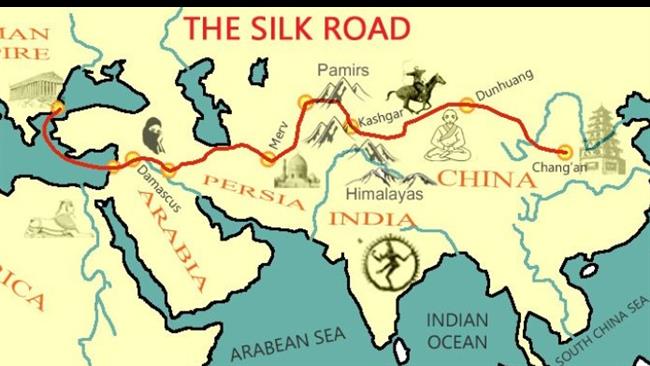China mulls investing $500bn in Silk Road plan


As China is pushing ahead an ambitious plan to revive the ancient intercontinental Silk Road trade route, speculations have emerged in the media that the country may invest half a trillion dollars in the crucial connectivity project.
Bloomberg said in a report that the Belt and Road Initiative could funnel investments worth $313 billion to $502 billion into 62 host countries over the next five years.
The report added that China could even make additional investments of as much as $79 billion in 13 African countries.
Most funds may flow into India, Russia, Indonesia, Iran, Egypt, the Philippines and Pakistan, the report quoted analysts as saying.
It added that the biggest beneficiaries of the plan, which is designed to link China with its neighbors by road and sea, could be midsize domestic construction and machinery companies and Asian infrastructure firms.
Bloomberg further emphasized that China might give certain countries preferential treatment to serve its own interests, such as bilateral relations, resources demand and the soundness of investment.
China’s media earlier said the country had already invested more than $50 billion in Belt and Road countries since President Xi Jinping introduced the initiative in 2013.
The country’s businesses have built 56 economic and trade zones in the countries, generating nearly $1.1 billion in tax revenue, Bloomberg quoted as report by the official Xinhua News Agency as saying.

The report further said that a crucial mechanism that Beijing was considering for the success of the Belt and Road Initiative was using local currencies instead of dollars. This, as acknowledged by Zhou Xiaochuan, the governor of People’s Bank of China, would help ensure financial stability in host nations and reduce risk from exchange-rate fluctuations.
Meanwhile, a top Chinese security official emphasized that the new Silk Road initiative depended on the countries involved ensuring strong security.
Reuters quoted China’s domestic security chief Meng Jianzhu as telling a conference held in Beijing on Thursday that the plan could only advance if there would be a secure and stable environment.
“Increasing international cooperation, jointly dealing with risks and challenges and protecting the security of One Road, One Belt is the joint responsibility of all countries,” Meng was quoted as telling the conference that was held to discuss the security of the One Road, One Belt plan.







